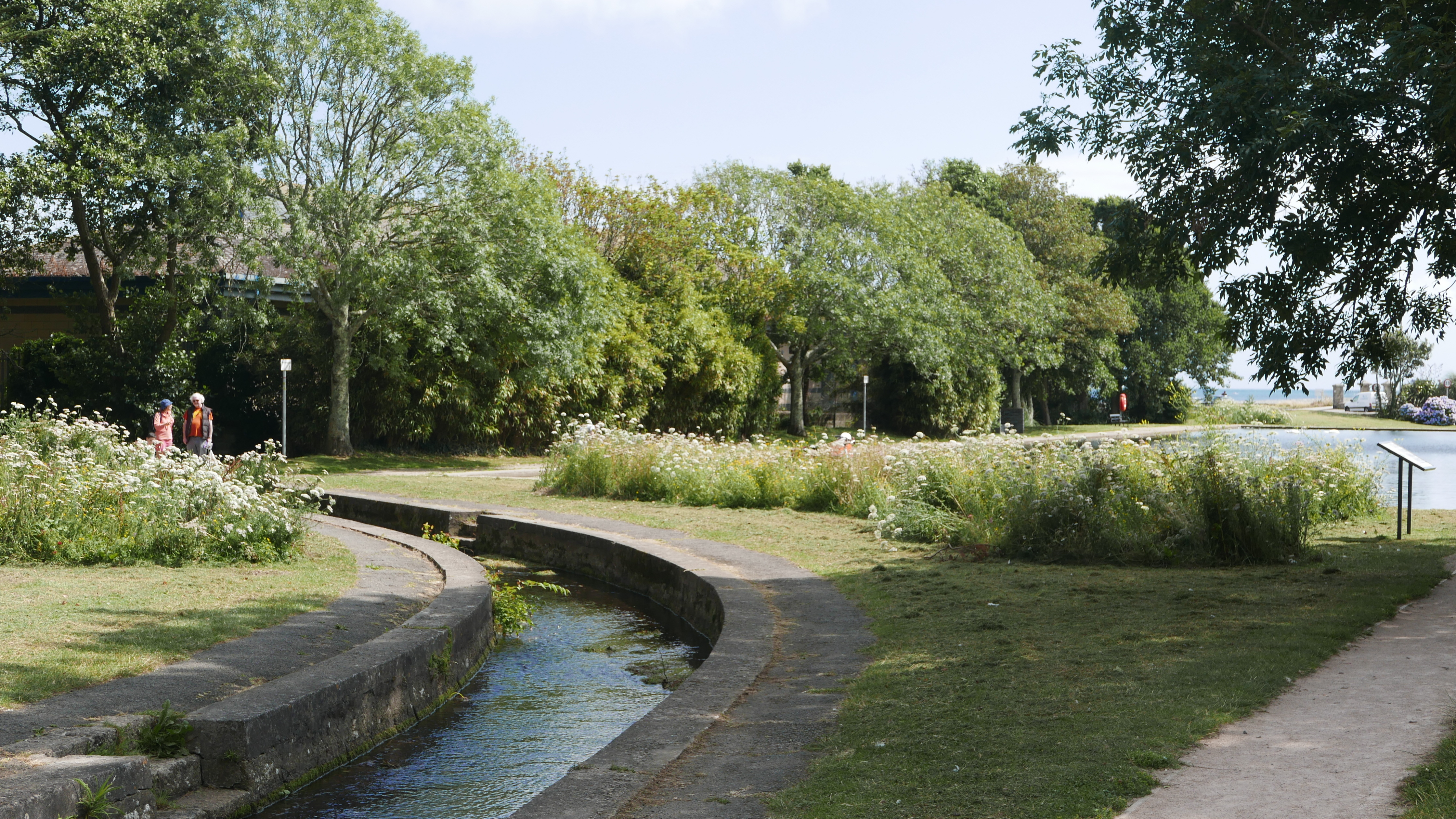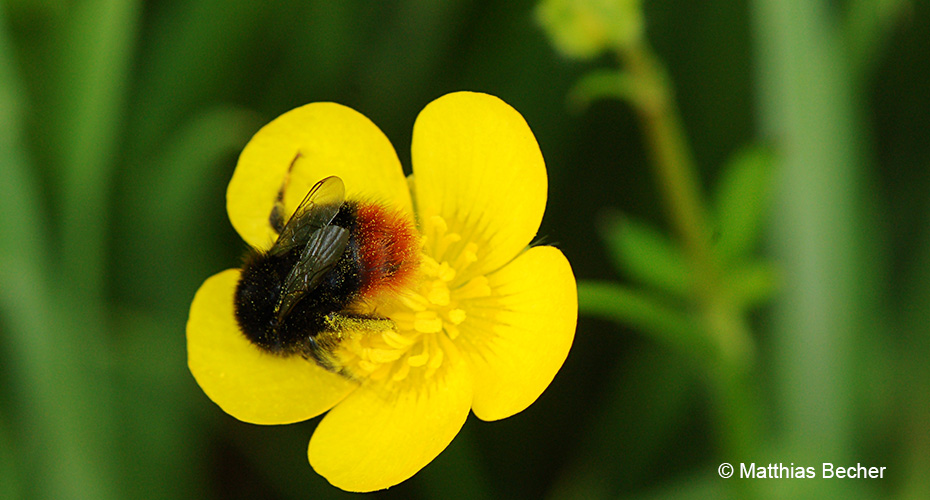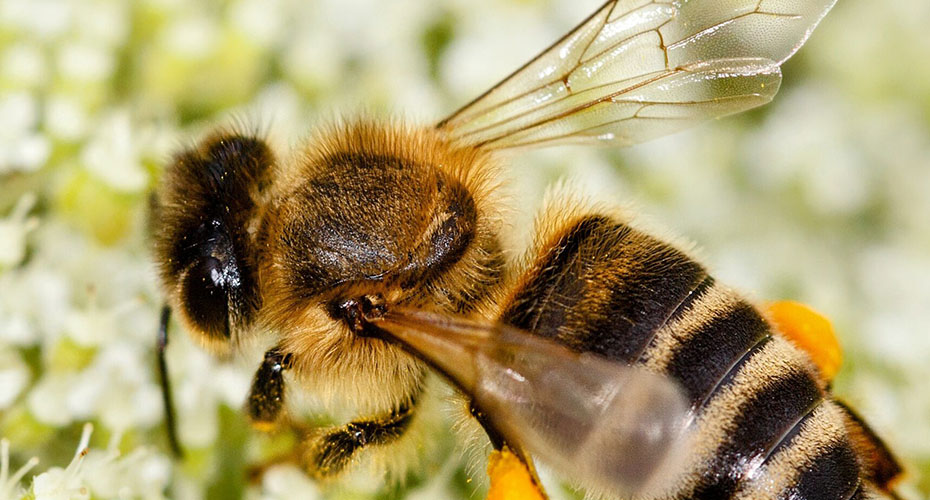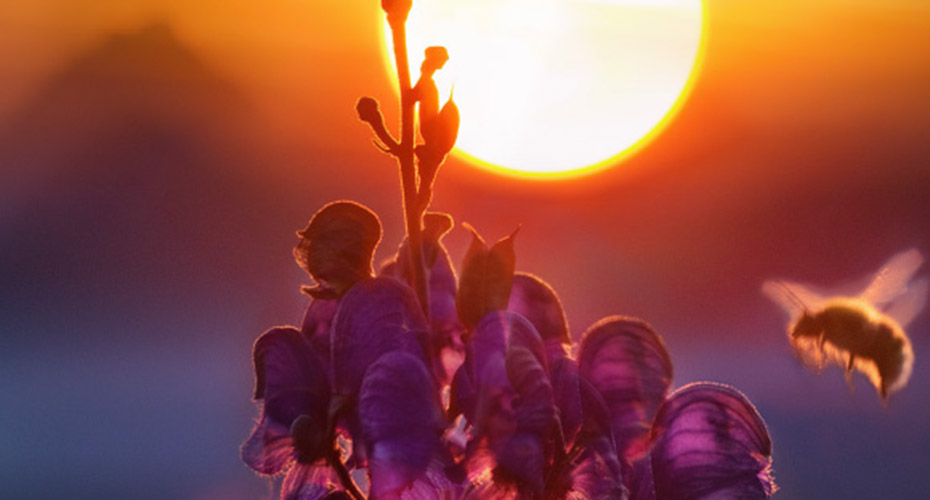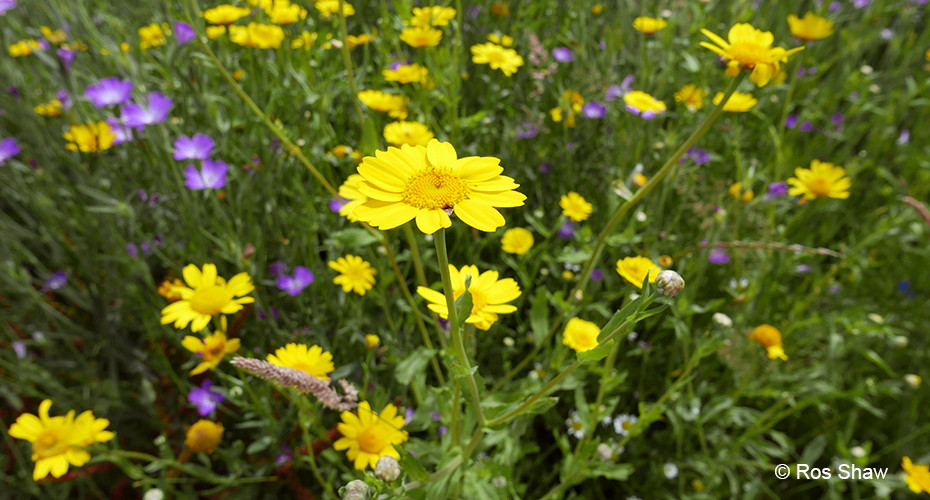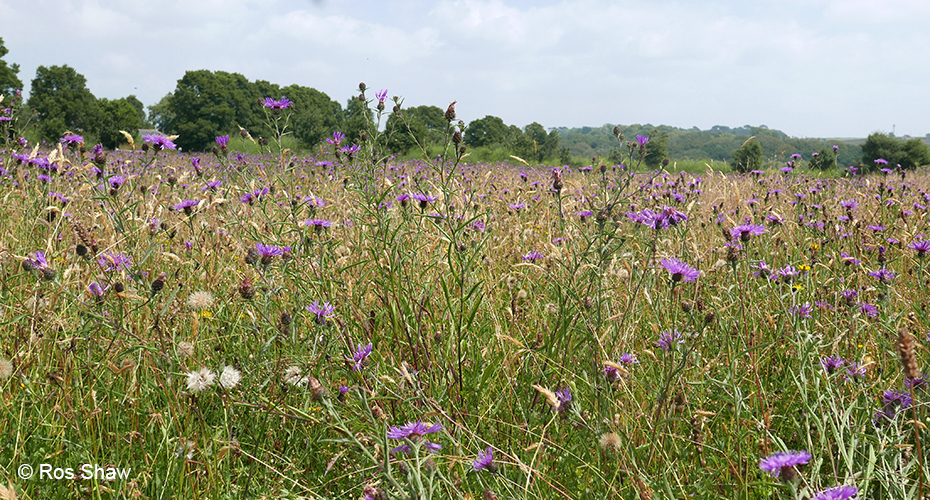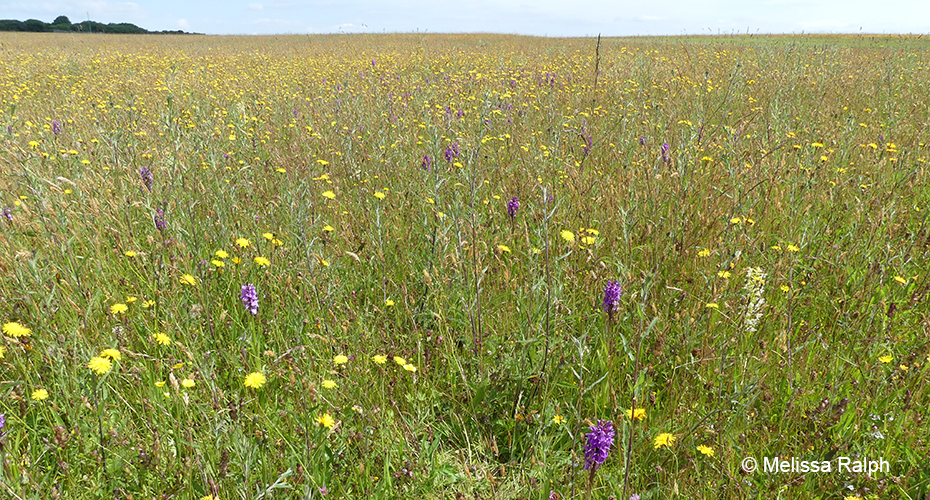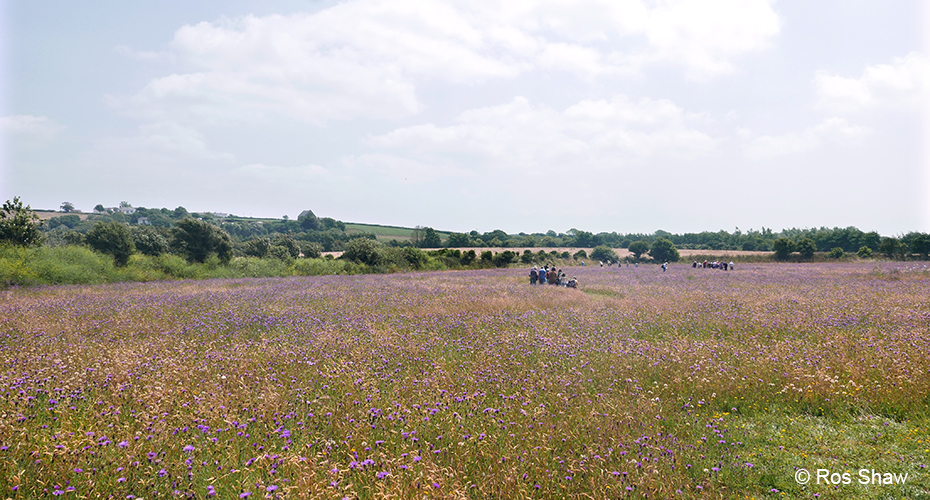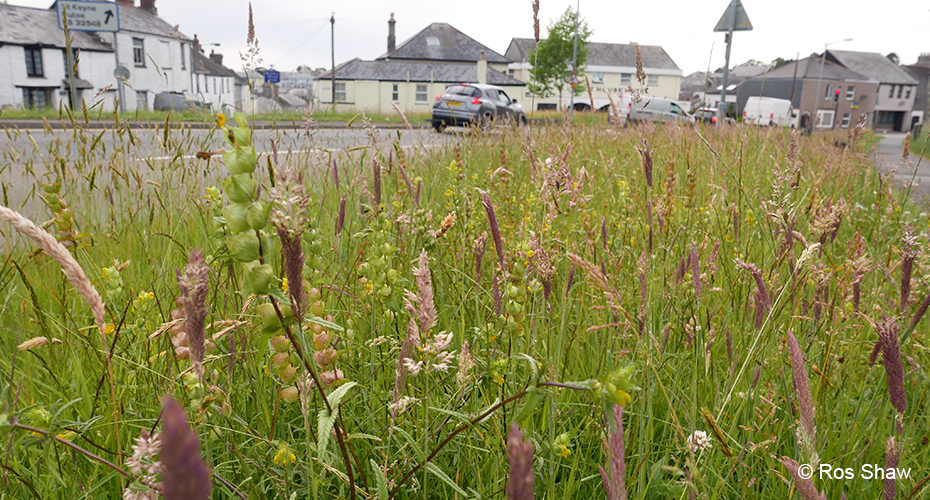Working with wildflowers: Bringing diversity back to our grasslands
Research overview
Over the past century, 97% of Britain’s wildflower meadows have been lost and with them, there has been a significant decline in pollinating insects. This drastic decline is detrimental to the ecosystem services that our grasslands and pollinators provide, such as plant pollination – fundamental for food production, soil quality, pest regulation and, where grasslands protect water courses and prevent flooding, water management.
Three quarters of Cornwall’s land area is farmed, with the majority (73%) dominated by grass production for dairy and beef. Cornwall Council also owns vast areas of common land, greenspaces and road verges (around 16,000ha). Despite a number of existing initiatives to manage grassland in a less intensive fashion, most grassland in Cornwall still remains heavily mown, grazed and fertilised, resulting in a ‘green desert’ which lacks biodiversity.
Key objectives
Through a series of linked projects and working with a wide range of stakeholders such as businesses, farmers, Cornwall Council and conservation charities we have been working to promote diverse wildflower habitats across the southwest, benefitting pollinating insects and providing multiple benefits for people. The aims have been to:
- Influence policy makers.
- Advise landowners and managers in creating wildflower rich habitats using Bee-Steward, the University of Exeter’s decision support tool.
- Develop novel business-led solutions to the pollinator decline.
Impact
The project team has fed into the National Pollinator Action Plan, Cornwall Council’s Pollinator action plan, Cornwall AONB’s management plan and, working in collaboration with Buglife, developed B-Lines for Cornwall. So far, 7637 h (of land has been created, enhanced or safeguarded specifically for pollinators (through the Bee-Steward plans) across farms, orchards, holiday parks and other businesses in Cornwall and the Isles of Scilly. Seven case studies for wildflower-based businesses including harvesting and selling seed, and the economic value of seed companies have been made available to increase knowledge and inspire other businesses. Work with landowners established a need for ‘Meadow Match’ a unique service linking landowners with fragments of species rich grassland with people looking to restore or enhance grassland using local seed sources. This adds economic value to the rare fragments of habitats and provides opportunities for landowners to develop additional income streams, while recipient sites get locally adapted seeds. The success of the work through the ESI has led to the development of a spin-off community interest company, the Wildflower Collective CIC which aims to provide project development and advice to businesses, landowners and farmers to create wildflower crops and habitats.

Wildflower meadows are such important spaces to help nature thrive, to lock and store in carbon and to provide a space for us to connect with nature. We’ve been able to find exciting ways to support all sorts of businesses to grow wildflowers in a way that makes sense financially but also helps fight the climate and environment emergency.
Dr Grace Twiston-Davies, ESI affiliate
A Meadow Safari - National Meadows Day from Wildflower Collective CIC on Vimeo.
Case studies on project activities are available though the Wildflower Collective CIC website and the SWEEP Impacts legacy website and include:
Case studies on novel businesses using wildflowers
Trewithen Estate: A case study on the benefits and opportunities of wildflower seed production
The Heligan Wildflower project (SWEEP)
Sylvawood Seeds Impact Case Study (SWEEP)
Economic value of wildflower businesses
Wildflowers: A business case for engagement, environment and economics (SWEEP)
To keep up with ongoing activities helping wildflower habitats in the southwest please visit the Wildflower Collective CIC.
Dr Grace Twiston-Davies (ESI affiliate)
Professor Juliet Osborne (University of Exeter)
NERC SWEEP (PAC ID 190337)
UKRI Higher Education Innovation Fund, via the University of Exeter’s Open Innovation Platform Fund

